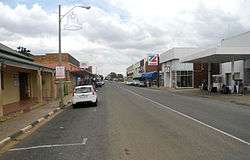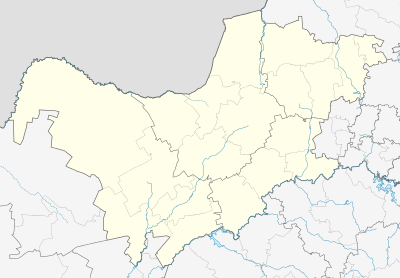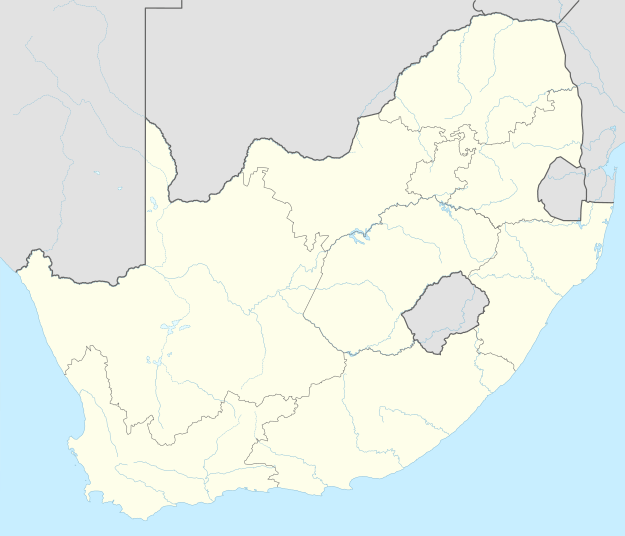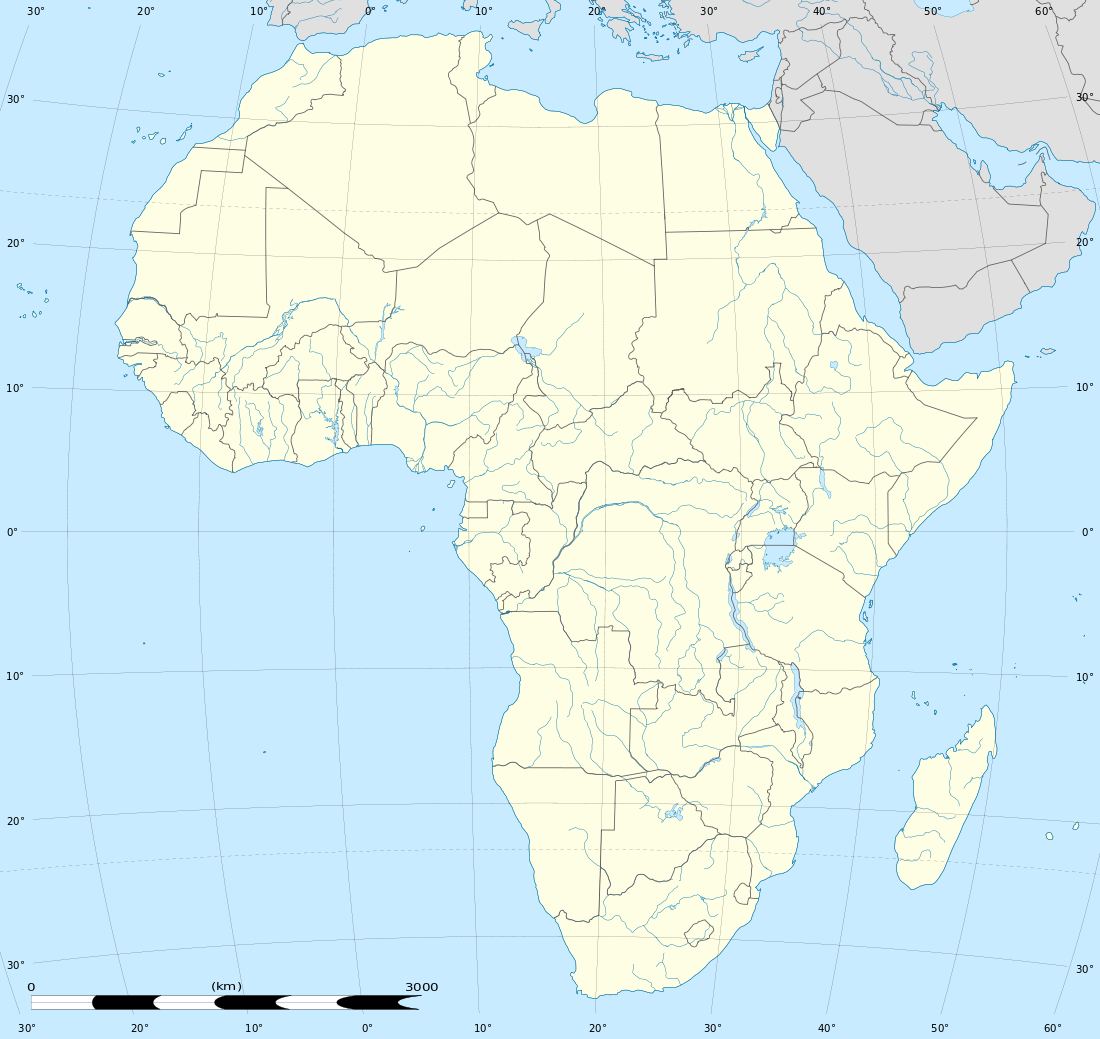Coligny, North West
| Coligny | |
|---|---|
 Street in Coligny | |
 Coligny  Coligny Coligny (South Africa)  Coligny Coligny (Africa) | |
| Coordinates: 26°20′S 26°19′E / 26.333°S 26.317°ECoordinates: 26°20′S 26°19′E / 26.333°S 26.317°E | |
| Country | South Africa |
| Province | North West |
| District | Ngaka Modiri Molema |
| Municipality | Ditsobotla |
| Area[1] | |
| • Total | 4.36 km2 (1.68 sq mi) |
| Population (2011)[1] | |
| • Total | 2,271 |
| • Density | 520/km2 (1,300/sq mi) |
| Racial makeup (2011)[1] | |
| • Black African | 43.2% |
| • Coloured | 3.4% |
| • Indian/Asian | 1.9% |
| • White | 49.8% |
| • Other | 1.7% |
| First languages (2011)[1] | |
| • Afrikaans | 50.6% |
| • Tswana | 34.6% |
| • English | 6.6% |
| • Xhosa | 1.4% |
| • Other | 6.8% |
| Time zone | UTC+2 (SAST) |
| Postal code (street) | 2725 |
| PO box | 2725 |
| Area code | 018 |
Coligny is a maize farming town situated next to the railway line between Lichtenburg and Johannesburg in North West Province of South Africa. The town is situated c. 27 kilometres (17 mi) south-east of Lichtenburg.
History
Originally named Treurfontein (Afrikaans: spring of sadness), it was renamed Coligny when it became a town on 23 July 1923, after Gaspard de Coligny, a Huguenot leader who died in the Massacre of St Bartholomew in 1572.[2] Coligny was the scene of sporadic diamond mining activities.
Gerdau
The Concordia Congregation (also known as Gerdau congregation after the origin of its first missionary) on farm Hakbosvlaakte was founded in 1905 and thus is older than the town. The church ran Gerdauer Gemeinde-Schule, a German-language school that operated successfully for 53 years.[3] This school was supported by German government and taught children from pre-school up to grade 7. In 1965 it had 2 teachers and 30 learners.[4]
2017 Rioting
On 25 April 2017 the Coligny and nearby Lichtenburg were the scene of extensive racial rioting following the death of Matlhomola Mosweu who died en route to the police station after being apprehended by two Afrikaner farmers for allegedly stealing sunflowers. The incident sparked violent protests, looting and destruction of property and local businesses predominantly owned by whites, foreigners and other minorities.[5] In an investigation into the causes of the rioting Rian Malan stated that the riots were further incited by representatives loyal to President Jacob Zuma from the trade unions SADTU and SANCO at Mosweu's funeral.[5]
Magistrate Recused from Case
The two farmers suspected of murdering Mosweu for allegedly stealing sunflowers from a farm appeared before a magistrate court on 28 April 2017. The magistrate Mattheus van Loggerenberg presiding over the case who is a resident of Coligny noted that it was in the interest of justice that he recused himself from the case citing that he feared for his life and that of his family.[6] The case was postponed to 9 May 2017 for a formal bail application. Further incidences of violence ensued after the two co-accused were released on bail.
References
- 1 2 3 4 "Main Place Coligny". Census 2011.
- ↑ Raper, Peter E. (1987). Dictionary of Southern African Place Names. Internet Archive. p. 122. Retrieved 28 August 2013.
- ↑ "Concordia-Gerdau Congregation" (PDF). Evangelical Lutheran Church in Southern Africa (N-T). Retrieved 15 August 2016.
- ↑ "Deutscher Bundestag 4. Wahlperiode Drucksache IV/3672" (Archive). Bundestag (West Germany). 23 June 1965. Retrieved on 12 March 2016. p. 30.
- 1 2 Rian Malan (9 May 2017). "Coligny: The shape of things to come?". News24. Retrieved 2017-05-11.
- ↑ Shenaaz, Jamal. "Safety fears see magistrate recused from farmers' 'killing' case in Coligny". Retrieved 2017-04-28.
.svg.png)